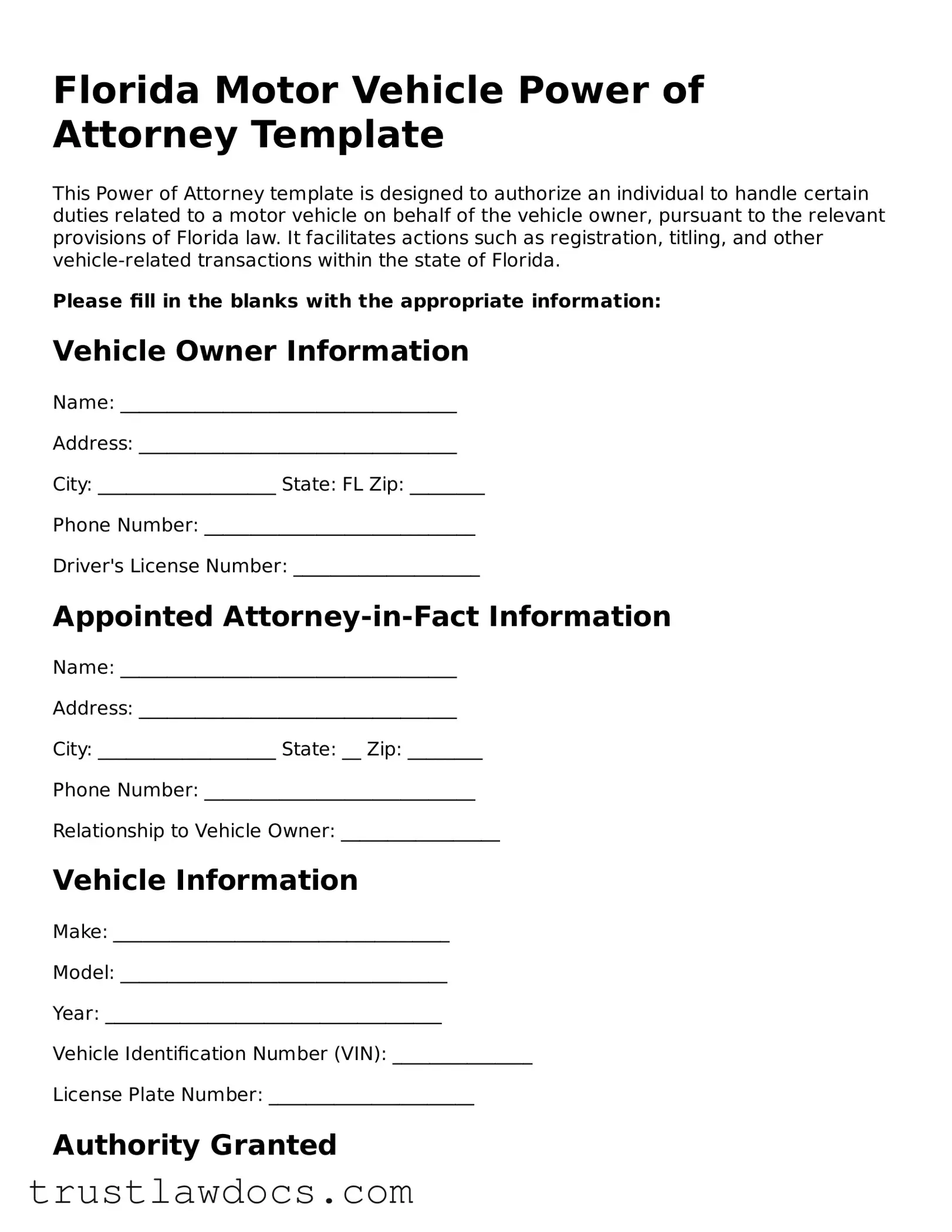Florida Motor Vehicle Power of Attorney Template
This Power of Attorney template is designed to authorize an individual to handle certain duties related to a motor vehicle on behalf of the vehicle owner, pursuant to the relevant provisions of Florida law. It facilitates actions such as registration, titling, and other vehicle-related transactions within the state of Florida.
Please fill in the blanks with the appropriate information:
Vehicle Owner Information
Name: ____________________________________
Address: __________________________________
City: ___________________ State: FL Zip: ________
Phone Number: _____________________________
Driver's License Number: ____________________
Appointed Attorney-in-Fact Information
Name: ____________________________________
Address: __________________________________
City: ___________________ State: __ Zip: ________
Phone Number: _____________________________
Relationship to Vehicle Owner: _________________
Vehicle Information
Make: ____________________________________
Model: ___________________________________
Year: ____________________________________
Vehicle Identification Number (VIN): _______________
License Plate Number: ______________________
Authority Granted
The Vehicle Owner hereby grants the following authority to the Appointed Attorney-in-Fact:
- To apply for and receive the certificate of title on behalf of the Vehicle Owner.
- To transfer title and registration of the above-described motor vehicle.
- To perform any and all acts necessary for the maintenance, insurance, and sale of the motor vehicle.
Term
This Power of Attorney shall become effective on ________ (date) and, unless sooner revoked, shall remain in effect until ________ (date).
Signatures
Vehicle Owner Signature: __________________________ Date: __________
Appointed Attorney-in-Fact Signature: ________________ Date: __________
This document is subject to the laws of the State of Florida, and any dispute arising under it shall be resolved in accordance with those laws.
Note: It is recommended to consult with a legal professional before executing this Power of Attorney document to ensure that it accurately reflects the intentions of the parties involved and complies with Florida law.
